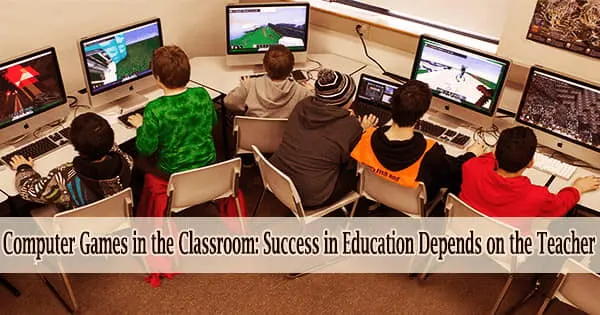According to a survey, future teachers perceive the pedagogical potential in video games. Thus, their potential in the classroom should be addressed in teacher training.
Researchers at the University of Cologne have shown that prospective educators are becoming more interested in using video games in the classroom. In order to assist this goal, the study suggests some particularly pertinent issues that teacher training programs should address.
The findings of the study have been reported in the British Journal of Educational Technology under the heading, “Teaching with Digital Games: How Intentions to Adopt Digital Game-Based Learning are Related to Personal Characteristics of Pre-Service Teachers.”
Children and adolescents heavily rely on computer games in their daily life and media consumption. However, this medium is rarely taken into account in modern classroom instruction. This might change as a result of the teachers of the future being trained in universities right now.
“In our current study, we focused on the teachers of tomorrow and how they can be better prepared to employ computer games in the classroom because computer games have great potential for teaching,” said Marco Rüth from the University of Cologne’s Psychology Department.
Computer games can help students strengthen their skills in the classroom as a learning aid, the authors of past studies have demonstrated. Additionally, they discovered that students may critically and constructively reflect on their experiences with the medium after using computer games in the classroom.
Based on this, the researchers conducted an online survey of 402 teacher candidates from universities in German-speaking countries to determine their intentions to incorporate video games as teaching aids and topics for reflection in their upcoming classroom lessons.
In our current study, we focused on the teachers of tomorrow and how they can be better prepared to employ computer games in the classroom because computer games have great potential for teaching.
Marco Rüth
The group looked at 21 personal traits, including awareness of computer games, anxiety of utilizing them in the classroom, and perceptions of their usefulness.
“Above all, the perceived effectiveness of computer games and perceived connections of computer games to curricula play a central role in the intention of teacher trainees to actually want to use them in school lessons,” Professor Kai Kaspar explained.
The current survey also revealed differences between the scenarios in which computer games are used: “If teacher trainees want to use computer games to promote the competencies of students, they pay particular attention to their own fear of using computer games and the extent to which people important to them think they should use computer games,” explained Marco Rüth.
“If, on the other hand, they want to use computer games for media-critical discussions, the focus was instead on the effort involved for them.”
The researchers advise that teacher training programs should prioritize including insights into computer game efficacy and their relevance to curricula since computer games are currently infrequently featured as a relevant medium in teacher training programs.
In order to improve teaching competences using computer games in the long run, teacher candidates should also be aware of potential obstacles in practical implementation and be ready to deal with them.
“This would require not only adjustments to the curriculum of the teacher training programme, but also further support services and research findings so that teachers in their later school practice know exactly when and how they can use computer games effectively in the classroom,” said Professor Kaspar.





